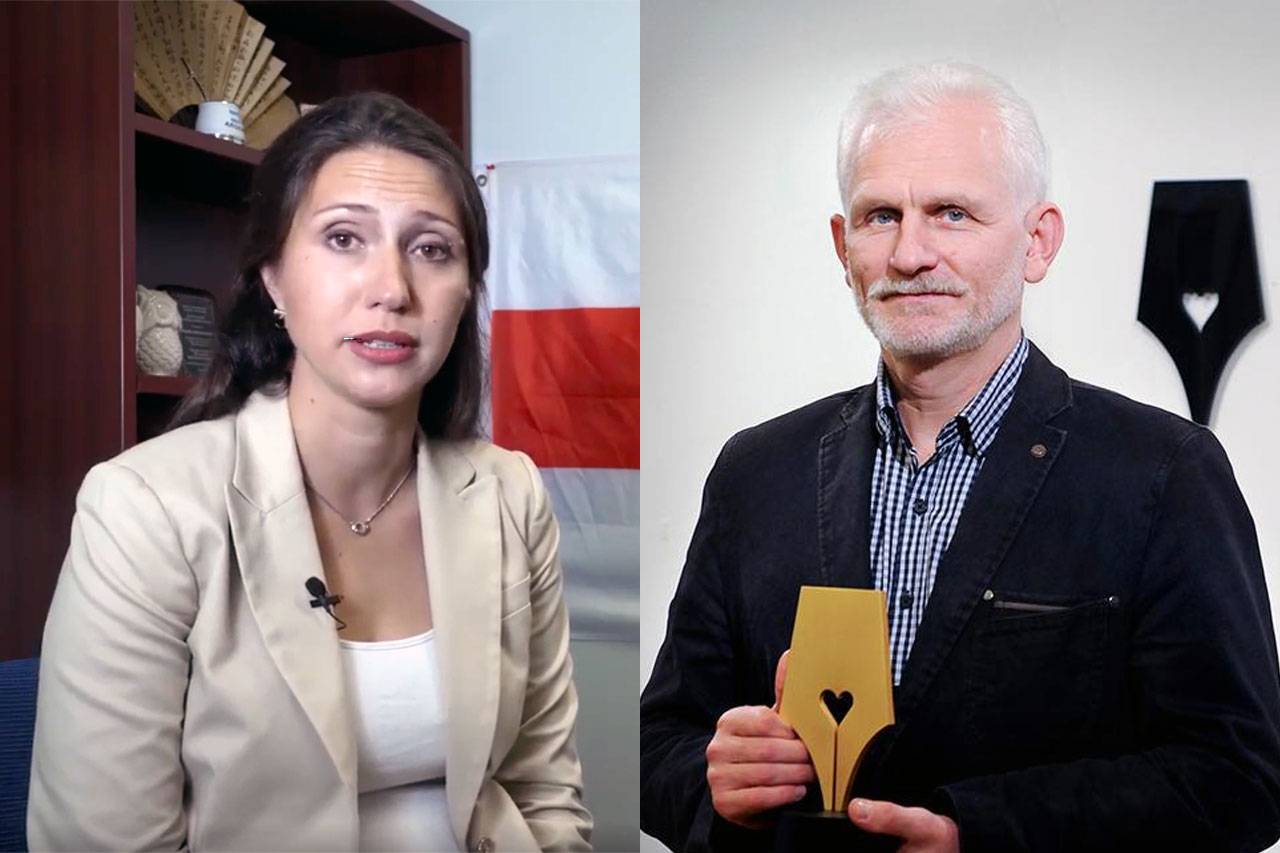Nobel Peace Prize Winner Ales Bialiatski and Me
Wednesday, Oct 19, 2022
Image: Palina Prysmakova; Ales Bialatski
By Palina Prysmakova, PJRH Affiliate and Associate Professor, School of Public Administration
I have never met Ales Bialatski, who was awarded the 2022 Nobel Peace Prize . Yet the way my life has been shaped thus far is the direct product of his work. I left my country, Belarus, on the eve of the 2006 presidential election, when it was clear that the election results would be falsified, that students would join the resulting election protests and strikes, and that they would be arrested and forced out of the universities. My parents literally pushed me out of the country. As thousands of other Belarusians questioned the state of affairs, my father was arrested. The only happy thought he had while in the prison was knowing that I was not in the other cell down the corridor of Akrestina detention center.
I got a scholarship as a member of a victim family and as a beneficiary of programs supported and verified by the human rights center "Viasna" - the nonprofit founded by Ales Bialatski that provides legal support to those suffering from inhumane treatment by Belarusian public sector officials. My scholarship enabled me to study public administration safely in the School of Law at the University of Bialystok, a Polish town on the border with my home country. That's where my road as a public administration scholar and educator started. That's why and how I entered academia and began research to try to understand why people work. Namely, why people like those that "Viasna" has been trying to sue work in the public sector, and why people like those employees and volunteers of "Viasna" devote their lives to true public service. These are the research questions that I have been pursuing here as a faculty member at FAU.
I have never met Bialatski. It is not because he wouldn't like to do so. He has spent each day thinking about the thousands of victims of the Belarusian regime and their families. I haven't had a chance to meet him, because Mr. Bialatski has been in prison and under arrest longer than he was a free man. The most famous case of his imprisonment by the regime has been his 6-year sentence for supposed tax evasion. This is an ironic, but not unique, case when the Belarusian government actually followed its own laws and prosecuted Bialiatsky as the leader of "Viasna" for not paying the taxes on private donations received to sue that same government for violating the human rights of its citizens.
The human rights center Bialiatski founded is called "Viasna," which means "spring season." His generation and his center have been doing their job planting the seeds of hope and support. Now, it is time for my generation to harvest the fruits. It's our call - and my personal mission as public administration scholar - to improve Belarusian public service and its public servants so that it puts respect for human rights first. It is our goal that "Viasna" goes out of business, not because it did a bad job or lost it registration, but because its mission - ensuring that Belarus becomes a country that respects human dignity - has been achieved.
------------------
With the support of PJHR and in collaboration with the human rights center "Viasna," I created a short educational video on the realities in my home country. You can watch it here . It was recorded two years ago, everything said in the future tense like "activation of the concentration camps" and the de facto "annexation of Belarus by Russia" has come true. Mr. Ales Bialiatski and most employees of "Viasna" have been under arrest and imprisoned for undetermined terms.
For more information on the current situation in Belarus, you can contact Palina Prysmakova at pprysmakova@fau.edu